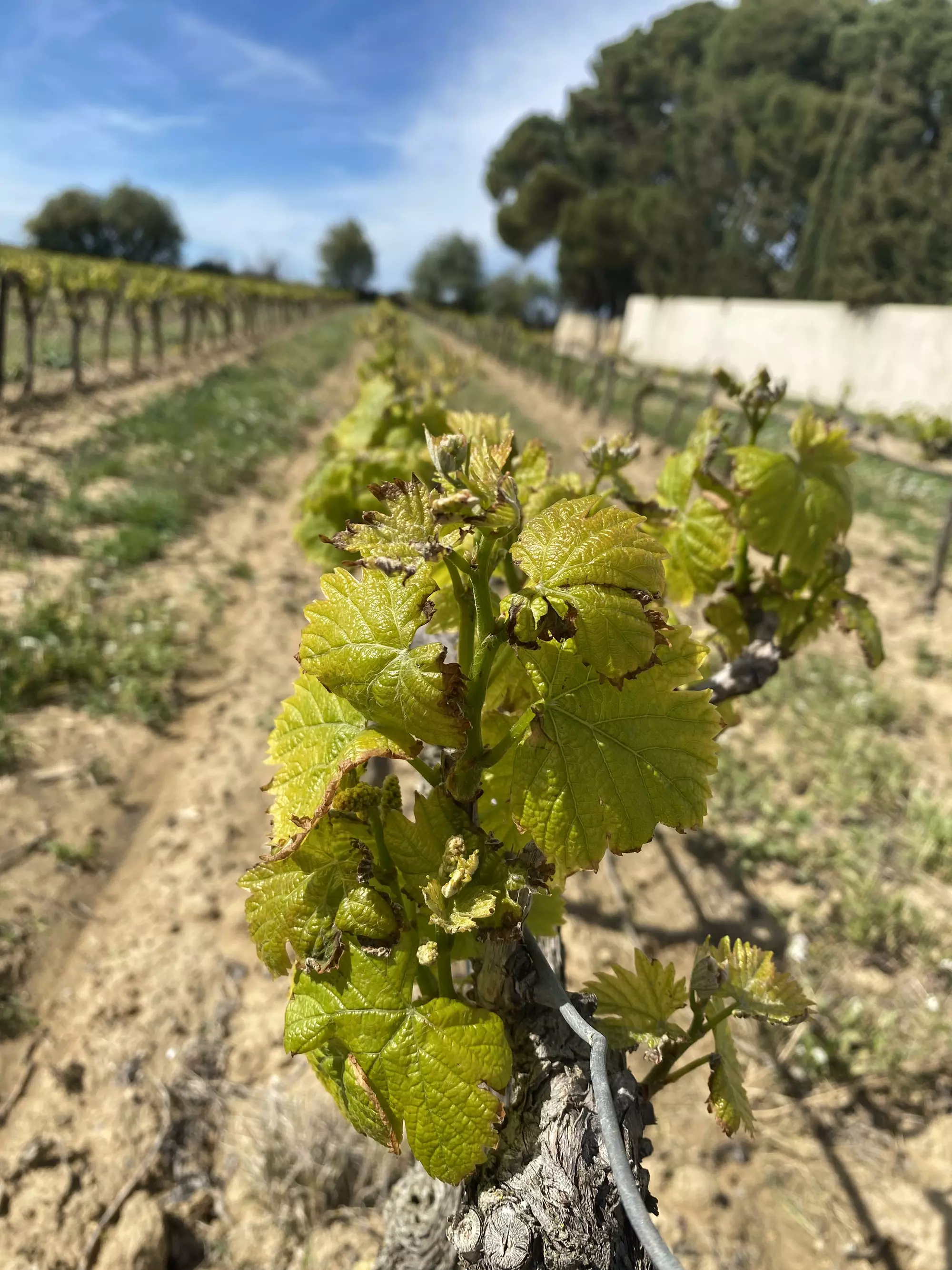
The proximity to the sea and the Thau lake has both advantages and disadvantages
The proximity to the sea and the Thau lake has both advantages and disadvantages... It happens that the leaves of our vines are scorched by the sea salt that is carried in the air.
This salt will impact the plants in several ways:
-
Dehydration of the leaves: Salt has the ability to absorb moisture from the air, creating a dry environment around the plants. When the leaves of the plants absorb this dry air, they can lose water through transpiration more quickly than usual. This can lead to dehydration of the leaf tissues, making them appear burnt.
-
Salt toxicity: Salt itself is toxic to plants in high doses. When leaves absorb too much salt, it can disrupt their ionic balance and cellular metabolism. This can result in damage to the leaf tissues and interfere with their ability to perform vital processes like photosynthesis.
-
Effects on photosynthesis: Photosynthesis is the process by which plants convert sunlight into usable energy for their growth and development. Chloroplasts in the cells of the leaves are responsible for the process. When these chloroplasts are damaged by exposure to salt, the plant may struggle to perform photosynthesis. This can lead to a decrease in plant growth and yield.
In summary, exposure to salt present in the air can have detrimental effects on plants by dehydrating them, causing direct toxicity, and disrupting their ability to perform photosynthesis, which can result in visible damage to the leaves and a negative impact on their overall health.
If you liked this article, feel free to share it on social media.


